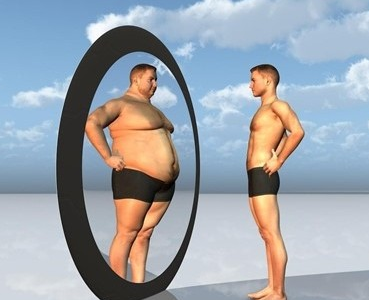The Silver Lining of Body Dysmorphia: A Paradoxical Exploration
- thebinge8
- Sep 19, 2024
- 3 min read

In a world where self-image is more curated than a high-end Instagram feed, body dysmorphia has emerged as an insidious companion for many, lurking in the shadows of our consciousness like an uninvited guest at a party. It’s that relentless little voice telling you your hair is a catastrophe, your skin a battlefield, and your overall existence a tragic comedy. Yet, in the midst of this self-critique—this constant goddamn scrutiny of the corporeal self—lies a peculiar opportunity for insight, growth, and maybe even a warped kind of beauty.
Let’s be candid: the idea that a bit of body dysmorphia could yield some positive outcomes seems almost heretical. But consider this: that gnawing dissatisfaction you feel every time you glance in the mirror might not just be an enemy to be vanquished but a catalyst for something richer and more profound. After all, the pursuit of perfection, while often a Sisyphean task, can ignite a fire under your ass. When you’re painfully aware of your perceived shortcomings, it can propel you into a frenzy of self-improvement that’s as relentless as it is exhilarating. The gym, the diet, the endless hours spent Googling “how to achieve a flawless jawline”—these aren’t merely acts of vanity; they’re declarations of agency. You’re actively resisting the inertia of mediocrity, even if that resistance is rooted in a gnawing sense of inadequacy.
Now, let’s engage with the notion of creativity—a topic laden with irony, if you ask me. Here’s the deal: the most compelling art often emerges from chaos, pain, and that dark night of the soul where the self is dissected and reassembled. Artists like Van Gogh, who wrestled with their own demons, birthed works that resonate with the very essence of human struggle. So, if you can’t see beauty in yourself, maybe you’ll be more inclined to seek it elsewhere. The next time you’re mired in self-doubt, channel that energy into something creative. Paint, write, compose—transform that internal battle into external expression. Your flaws could become the grist for the mill of artistic creation, giving rise to a new form of beauty that defies conventional standards.
Let’s not gloss over the social dynamics here either. If you’re acutely aware of your own perceived imperfections, you might find yourself developing an empathy that’s rare in a world obsessed with image. In an era characterized by superficial connections and curated personas, your struggle might serve as a gateway to deeper understanding. You become a connoisseur of human experience, able to navigate the complexities of others’ insecurities with a kind of grace that can only emerge from self-awareness. You might even forge genuine connections based on shared vulnerabilities—transforming what could be isolation into community.
And then there’s the realm of fashion and self-expression. A little body dysmorphia might push you into avant-garde territories, leading to experimental clothing choices that defy categorization. Who knows? Your wardrobe could become a manifesto against the blandness of societal norms, a reflection of your unique perspective—a living, breathing critique of the status quo. Fashion, after all, can be a powerful tool for redefining identity.
And let’s not forget the resilience you cultivate through this struggle. If you’ve spent years navigating the treacherous waters of self-doubt, you’ve developed a mental toughness that’s enviable in its own right. Life will throw you curveballs—losses, disappointments, the everyday grind—but you’ve already weathered a storm that is both internal and relentless. Your adaptability becomes a superpower, a skill set honed in the fires of self-reflection.
Now, before I meander too far down this philosophical rabbit hole, let’s take a moment to acknowledge the gravity of body dysmorphia. It’s a legitimate mental health issue that requires understanding, compassion, and sometimes professional intervention. The aim here isn’t to romanticize suffering but to offer a glimmer of hope, a recognition that even in the darkest corners of the psyche, there can be the seed of something beautiful.
So, as you stand before the mirror—examining that perceived imperfection, the little things that gnaw at your self-esteem—consider this: maybe that discomfort isn’t just a cruel joke but a potential catalyst for growth. What if, in the labyrinth of self-critique, you discovered the very essence of what it means to be human?
In a world fixated on superficial beauty, embracing the complexity of our flaws might just lead to a more nuanced understanding of ourselves and others. And maybe, just maybe, that’s the kind of beauty we’ve all been searching for.
Comments